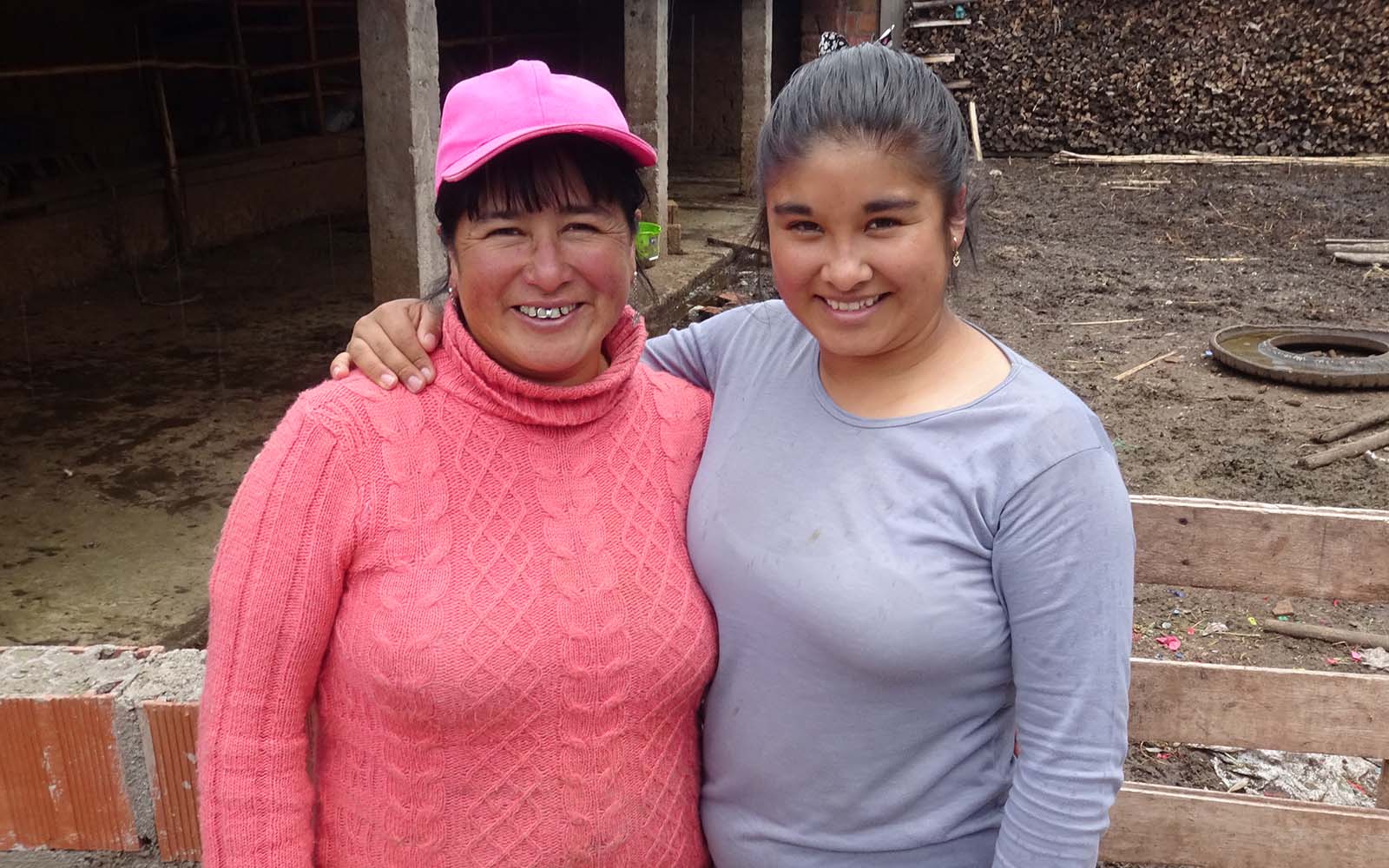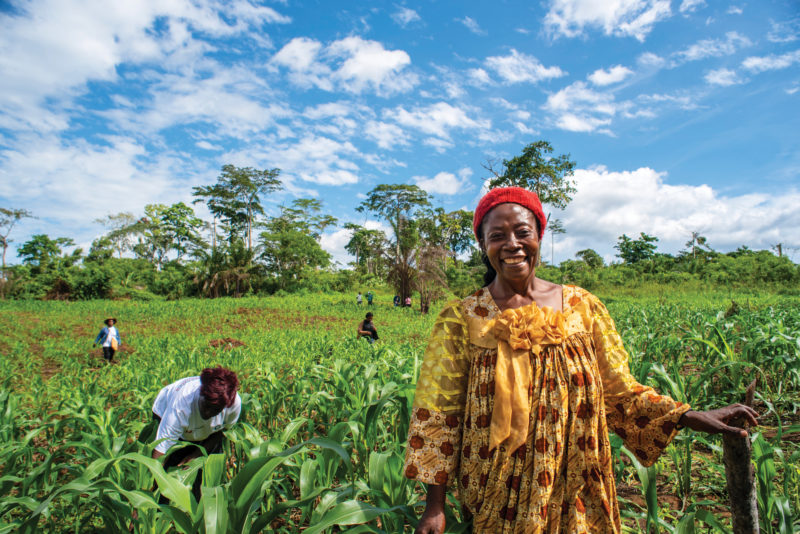Exploring the possibilities
Story

Current and former Cuso International staff, leaders, and volunteers delve into some of the issues and challenges facing international cooperation.
Ian Smillie remembers being asked by a reporter, while he was executive director of Cuso International back in the early 1980s, whether the organization was at a crossroads.
There were certainly challenges at the time – funding issues, changes in the number and type of volunteers being recruited, and staff forming a union, Smillie says, naming a few. But, he also thought the question was a curious one, and he probed the reporter on it. The journalist responded by saying he often asked the question because he had “never met an NGO that wasn’t at a crossroads.”
“There was wisdom in that response, I thought,” says Smillie, acknowledging the shifting landscape and dynamics of the international development and cooperation sector.
In the current context, global events of the past few years – including growing awareness of the climate crisis, the #MeToo and Black Lives Matter movements, and the COVID-19 pandemic – have pushed for more action at all levels of society. And with that, the pressure to adapt and address systemic issues has never been greater, putting Cuso International and other organizations at another major crossroad.
“The challenges in many respects are systemic issues around the structures that we operate in as international development organizations,” says Nicolas Moyer, CEO of Cuso International. “We have to acknowledge that the north-south dynamics that defined the colonial era continue to be present today and are increasingly and rightly being called out. Agency of southern partners is in play and ownership of their own futures must be in their hands – and that raises questions in the sector about many things, including anti-racism, decolonization, and localization.”

Innovation Fund project, Cameroon. Photographer: Brian Atkinson
Particularly over the course of the COVID-19 pandemic, when volunteer-sending was halted and processes had to shift to cope with changing circumstances, localization – a transformative process that focuses on and invests in local and national leadership and capacities – has become a key area of discussion.
Yvette Macabuag, Head of Program Quality and Impact at Cuso International, says the pandemic has presented great challenges and forced the organization to re-evaluate the entire volunteer journey. It has also required all Cuso International staff to be creative and adaptable.
“In the absence of having the support of Canadians (as volunteers), our partners have had to look elsewhere, and that meant more volunteers from their own countries (national volunteers) to build additional capacity, and greater partnerships within communities,” explains Macabuag, who leads the Cuso International team overseeing volunteer recruitment, as well as program knowledge and impact, and monitoring and evaluation.
“Localization is definitely something we have become more familiar with over the course of the pandemic and we’re seeing, as an organization, ways we can help to strengthen those efforts over the coming months or years.”
Stephanie Boyd, a long-time Cuso International volunteer currently working with Cuso International’s partner in Peru as a media advisor with the Instituto de Defensa Legal and focused on connections with the Kukama Indigenous people in the Amazon region, is keenly aware of the north-south dynamics and the need to shift greater agency to southern partners.
“Just before signing up for my first volunteer post in 1997, I took some international development courses at the University of Toronto and the whole idea of international development seemed to be about the north going to the south and the idea of helping people,” says Boyd. “And I feel like the wise people in the international development sector have realized that that’s not what it’s about and that it’s more about exchange and learning on both sides.”
Moyer echoes that thought, acknowledging that there has been a lot of learning over the past few decades within the sector, and in many respects, things are going well. “Aid flows have never been higher, and the level of ambition has never been higher to solve global problems together,” he says, citing the Sustainable Development Goals and the Conference of the Parties (COP) addressing the climate crisis as examples of solid collaboration. “But the means and the political will can often be perceived to be lacking … this is certainly one of the big challenges that we face as a planet, as well as within individual countries and jurisdictions.”
In terms of anti-racism work and decolonization, both Moyer and Macabuag say the process needs to begin with an inward look at how the organization and individuals within it work and examining the existing structures that support the sector.
“I think there are these two things … how do we decolonize but also how do we become decolonial?” says Macabuag. “What is this new thing we need to create and who needs to be a part of this new creation?
“I think, as an organization, we need to be able to embrace change. It’s not to say that we throw away our history and that very solid foundation that we have, but change in terms of how we evolve as an organization … we need to consider how we work and keep up with the times and ask ourselves, are we still doing this in the right way?”
Smillie, who has remained a vocal critic and proponent of the sector over several decades as an author and consultant, sees many issues of concern, including the rise of “voluntourism” and the ever-present and ongoing need for more engagement with the Canadian public about what international development is and what it can do.
“I think returning volunteers need to be and could have been more outspoken, noisier, about educating the public,” says Smillie, noting that Canadians should have understood earlier the perils of voluntourism and how it isn’t development. “Volunteers could have had a bigger role in shaping Canada and Canadians’ views about the world.”
Moving forward, Moyer says the focus at Cuso International will need to be on asking tough questions within the organization and determining where it fits in to the ecosystem of international cooperation and north-south relations, considering the organization’s long history and successes, as well as how we will adapt and change within a shifting environment.
“This is why it’s so important that we’re going through a strategic planning process now in 2022, where we’re going to be reaffirming our commitments to our strategic directions,” Moyer says. “We have to be able to hold our principles and our priorities, thematic and impact-focused priorities including gender equality, poverty, and climate action, above other considerations, and we have to be able to shift to ensure we are focusing on impact and driven by our values above everything else.”